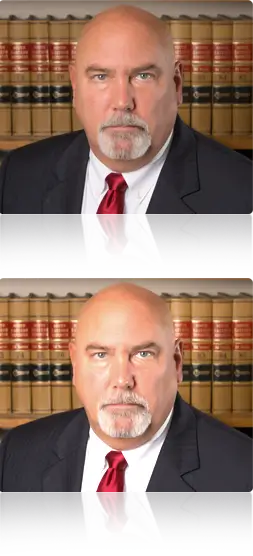Personal Injury Claims Involving Minors

When a child is injured due to someone else’s negligence, the legal process for pursuing compensation is different—and often more complex—than it is for adult personal injury claims. Special rules apply when minors are involved, including longer time limits to file a lawsuit, different procedures for managing settlements, and specific protections for the child’s best interests. At Burke, Schultz, Harman & Jenkinson, we are committed to helping families in Martinsburg and throughout West Virginia meet these unique challenges and secure the compensation young injury victims deserve.
Here’s what you need to know about personal injury claims involving minors in West Virginia. If your child has been hurt due to the negligence of another, contact our office to speak with an experienced and dedicated Martinsburg personal injury lawyer.
Statute of Limitations for Child Injury Claims
One of the most significant differences in child injury cases is the extended time frame to file a lawsuit. In West Virginia, the statute of limitations for most personal injury claims is two years from the date of the injury. However, when the injured party is a minor (under the age of 18), the clock doesn’t start running immediately.
Instead, the statute of limitations is tolled, or paused, until the minor reaches the age of majority. This means a child generally has two years from their 18th birthday to file a personal injury lawsuit for an accident that happened while they were a minor, giving them until their 20th birthday in most cases.
There are exceptions, though. Some claims, particularly those involving government entities, may have shorter deadlines and different notice requirements. And moving quickly to pursue a claim or file a lawsuit even while the child is still a minor may be important to securing a successful result with maximum compensation. It’s crucial to consult with a knowledgeable attorney early to ensure all deadlines are properly understood and met.
Role of Guardians and Next Friends
Since minors cannot legally file lawsuits on their own, a parent, legal guardian, or a court-appointed representative known as a “next friend” must bring the claim on the child’s behalf. The next friend is usually a parent, but can also be another adult who can adequately represent the child’s interests.
This person has the authority to make decisions about the case, including whether to settle or proceed to trial, but their decisions must always be in the best interests of the child. In many situations, the court will closely review these decisions to ensure the child’s rights are protected.
Managing and Approving Settlements for Minors
When a settlement is reached in a case involving a minor, West Virginia law typically requires court approval before the settlement can be finalized. This safeguard is in place to ensure that the settlement is fair and that the funds are properly managed for the child’s benefit.
In many cases, the settlement proceeds will not be paid directly to the parents. Instead, the funds may be placed in a guardianship account, trust, or structured settlement that restricts access until the child reaches adulthood, unless the funds are specifically needed for the child’s immediate care, such as ongoing medical treatment or education expenses.
The court will also often require a financial plan showing how the money will be used and may appoint a guardian to oversee the funds until the child turns 18. This process helps prevent misuse of the settlement and ensures the compensation truly serves the child’s long-term needs.
Discovery and Trial Testimony Involving Minors
When a personal injury case involving a minor moves into litigation, the child may need to participate in certain parts of the discovery process, such as depositions or medical evaluations. Courts and attorneys generally try to handle these situations delicately, minimizing the emotional burden on the child while still preserving the necessary evidence.
Whether a minor will testify at trial depends on the child’s age, maturity, and the relevance of their testimony. Judges carefully consider whether testifying might cause harm or emotional distress to the child and may place limits on questioning or make special accommodations, such as allowing testimony in a more private setting or using video depositions.
Parents and attorneys should prepare the child for what to expect, but great care must be taken to avoid coaching or influencing the child’s version of events. The credibility of a minor’s testimony can have a significant impact on the outcome of the case.
The Importance of Legal Representation
Personal injury claims involving minors require a thoughtful and experienced approach. Parents must balance the desire to obtain compensation with the need to protect their child from further stress or harm during the legal process. From extended filing deadlines to court oversight of settlements, these cases involve additional layers of complexity that aren’t present in typical adult injury claims.
At Burke, Schultz, Harman & Jenkinson, we help families in Martinsburg and throughout West Virginia understand their rights, comply with all legal requirements, and make informed decisions at every step of the process. Whether your child was injured in a car accident, a school-related incident, a dog bite, or another preventable event, we are here to guide you through the legal system with compassion and care.
Contact Our Martinsburg Law Firm for Help With a Child Injury Case in West Virginia
If your child has been injured due to someone else’s negligence, don’t hesitate to seek legal guidance. The sooner you involve an experienced attorney, the sooner you can protect your child’s rights and secure the resources they may need for their recovery and future. Contact Burke, Schultz, Harman & Jenkinson today for a free consultation. We will carefully review your case, explain the unique issues involved in child injury claims, and help you pursue the compensation your child deserves.





